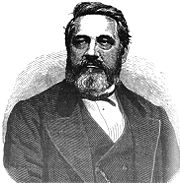
Wilhelm Herchenbach
Encyclopedia

Germany
Germany , officially the Federal Republic of Germany , is a federal parliamentary republic in Europe. The country consists of 16 states while the capital and largest city is Berlin. Germany covers an area of 357,021 km2 and has a largely temperate seasonal climate...
author.
Having attended school in Neunkirchen
Neunkirchen-Seelscheid
Neunkirchen-Seelscheid is a municipality in the Rhein-Sieg district in the southern part of North Rhine-Westphalia, Germany. Beside the two principal places Neunkirchen and Seelscheid there are numerous smaller localities among the municipality....
, Wilhelm Herchenbach decided to become a teacher himself. He taught in the town of Düsseldorf
Düsseldorf
Düsseldorf is the capital city of the German state of North Rhine-Westphalia and centre of the Rhine-Ruhr metropolitan region.Düsseldorf is an important international business and financial centre and renowned for its fashion and trade fairs. Located centrally within the European Megalopolis, the...
, where he also founded his own boys' school in 1850.
In between 1852 and 1854 Wilhelm became the private teacher of Stephanie of Hohenzollern
Stephanie of Hohenzollern-Sigmaringen
Stephanie of Hohenzollern-Sigmaringen was the Queen consort of King Peter V of Portugal.-Family:...
(the daughter of Prince Karl Anton of Hohenzollern-Sigmaringen), the future queen of Portugal; he also taught the kids of Robert
Robert Schumann
Robert Schumann, sometimes known as Robert Alexander Schumann, was a German composer, aesthete and influential music critic. He is regarded as one of the greatest and most representative composers of the Romantic era....
and Clara Schumann
Clara Schumann
Clara Schumann was a German musician and composer, considered one of the most distinguished pianists of the Romantic era...
, while their parents were touring in Europe.
From 1868 onwards, Wilhelm Herchenbach focused on writing, and by the time of his death in 1889, his works comprised over 300 books. Most books were renarrations of local folk tales or told stories of his own imagination and were usually targeted at young readers, centering around issues of (Christian) morality. But Wilhelm also wrote novels with an historical background, travelogues and books of educational intent. His works once had a quite high circulation and were translated into several other languages (like English, French, Dutch etc.). Publication of the books ceased in the 1930s.

